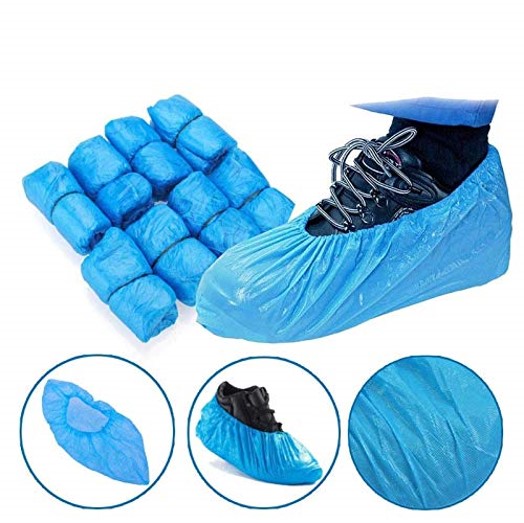CPE (Chlorinated Polyethylene) shoe covers are high-quality products commonly used in various applications, especially in the medical and food industries. Here is a detailed summary of CPE shoe covers and their important characteristics:
Raw Material and Production Process:
- CPE shoe covers are manufactured from polyethylene through a chlorination process, where chlorine is added to the molecular structure of polyethylene. This process enhances the waterproof and chemical-resistant properties of the product.
Characteristics of CPE Shoe Covers:
- Water Resistance: CPE shoe covers have the ability to resist water, preventing liquids from permeating inside the shoe and coming into contact with the foot.
- Chemical Resistance: They resist various chemicals, particularly corrosive substances, making them suitable for industrial environments requiring such properties.
- Skin-Friendly: CPE shoe covers typically do not contain latex, helping to avoid latex-induced skin allergies. This is especially crucial in the medical field.
Specific Applications:
- Medical: CPE shoe covers are often used in hospitals, operating rooms, and healthcare facilities to protect healthcare workers’ feet from contamination and contact with bodily fluids.
- Food Industry: In the food industry, they are used during food processing, particularly when ensuring safety and hygiene during food handling.
- Chemical Industry: CPE shoe covers are also favored in chemical industrial environments where protection against corrosive chemicals is essential.
Convenience and Cost-Effectiveness:
- CPE shoe covers typically feature an easy-to-use design with sufficient thickness to protect against potential hazards.
- Due to their lower cost compared to many other types of shoe covers, such as traditional medical shoe covers, they are considered a cost-effective choice.
In conclusion, CPE shoe covers are a cost-effective and reliable choice for protecting feet and shoes from contamination and potential hazards in various applications. Their waterproof, chemical-resistant, and skin-friendly properties make them an integral part of personal protective equipment in many industries.

